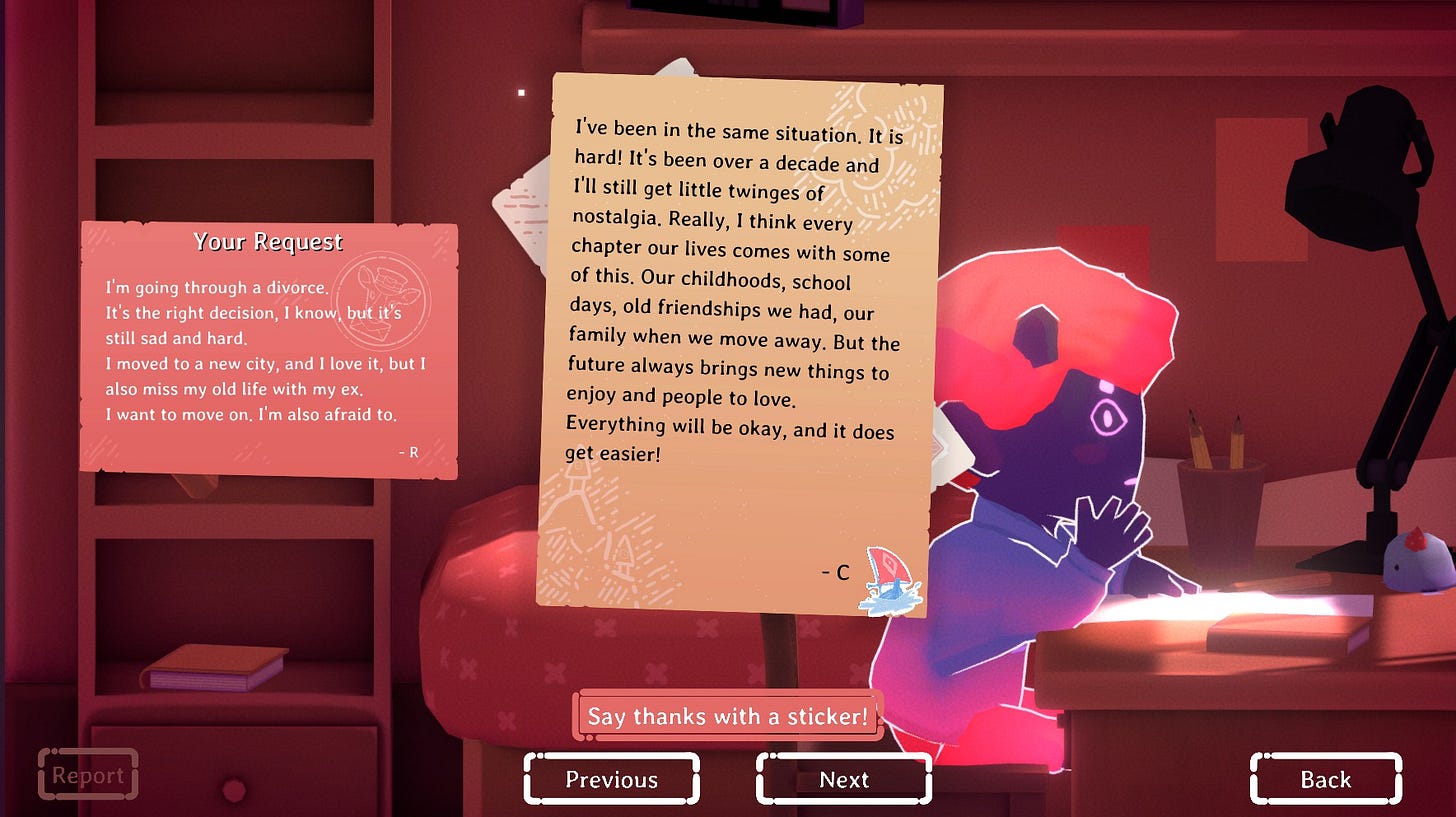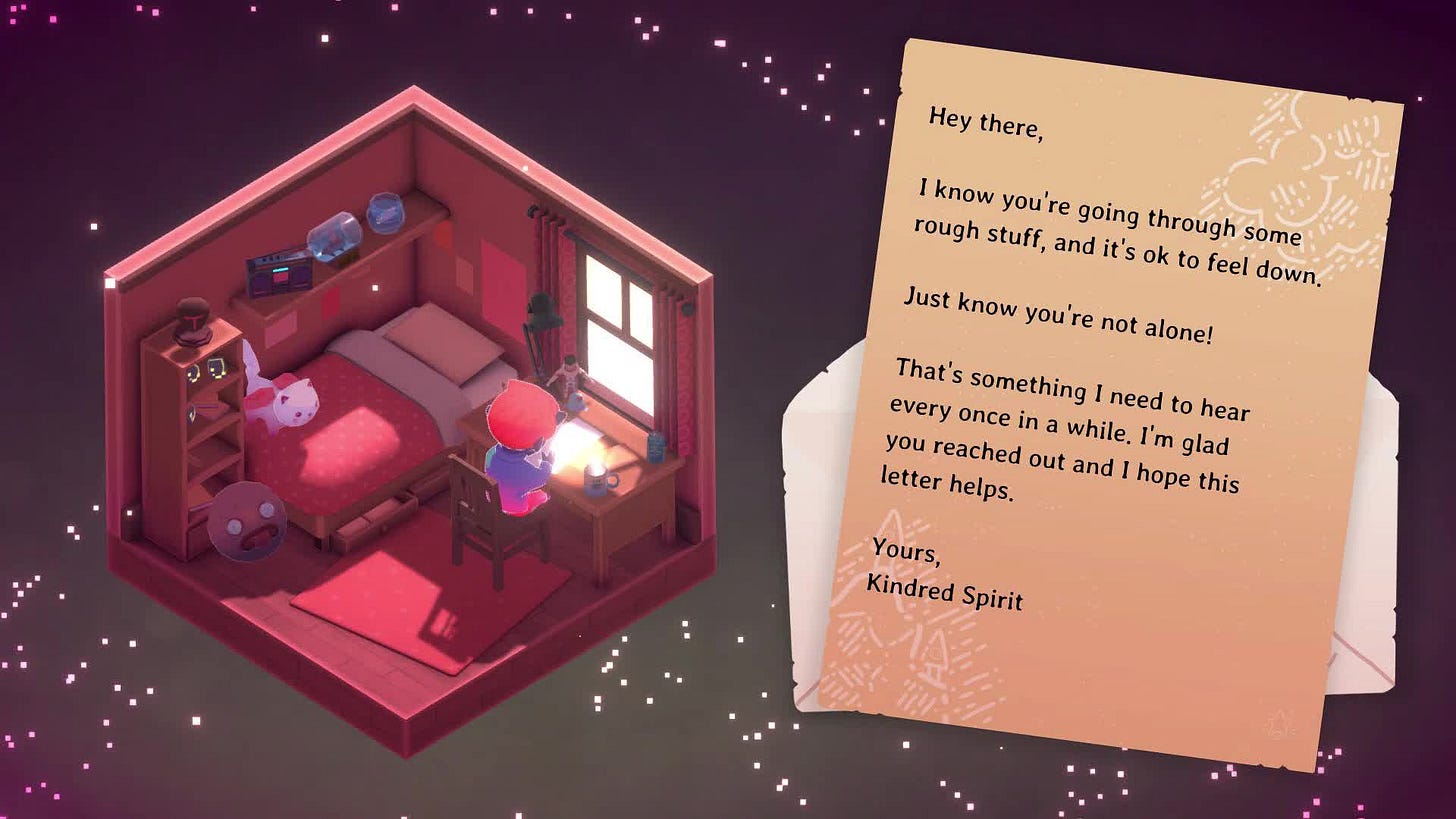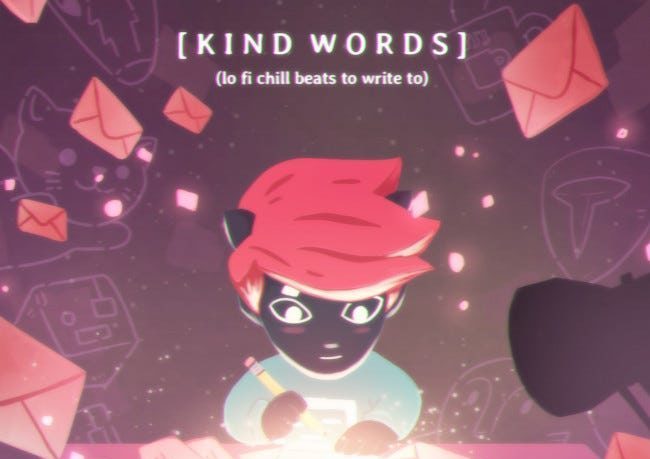A few years ago I went on a beach holiday with friends. Only vague memories of that trip remain with me today, but there is one thing I will never forget.
On the beach where I and the others were fooling around, a middle-aged couple always came to the same place at the same time. She was confined to a wheelchair, so her companion, after placing the towel on the sand, would carry her as close to the waves as possible. The two were like cogs in a Swiss watch: they always arrived an hour before sunset and admired it together, only to return home when the sun had disappeared behind the horizon.
I watched them fascinated, but at the same time with a strong and inexplicable anguish. I could never understand where that feeling came from, nor did I ever decide to talk about it with any friends. Maybe out of shyness, maybe out of the stubbornness of wanting to kill my demons alone, without anyone’s help.
The truth is that I wanted to hear the words of a stranger, someone who did not know me and somehow did not want to or could not judge me. An ephemeral but precious passing friend, like those one might meet on a long train journey
If you have been in this situation at least once, Kind words (lo fi chill beats to write to) is certainly the title that deserves your attention. More a virtual sanctuary than a video game in the strict sense of the word, this little interactive experiment was able to give me unique experiences and sensations that I haven’t felt since the last time I wrote a letter to a dear distant friend.
The charm of Kind words lies precisely in its simple but wonderful basic idea: write down our thoughts, doubts or fears and let them fly in the cybernetic ether, waiting for a stranger on the other side of the world to read them and decide to give us an answer. Whether it is sincere advice, simple reflection or a clumsy attempt to cheer us up, we will never be allowed to know the identity of the person who has taken up our call for help.

And it is thanks to the creation of this secret space, free from social and reputational pressures, that Popcannibal’s title reminded me of the precious value of anonymity, a luxury that is all too often devalued today due to its distorted abuse. From this perspective, Kind words is the best of all possible social networks, the platform we need but do not deserve. A precious place where we can finally abandon for a moment the heavy ballast that modern communication has forced us into.
In a falsely social world that forces us to build a showcase where only the very best of our lives are allowed, the small and cosy room where we will find ourselves writing or reading will turn out to be a refuge where we can catch our breath, gently lulled by the lo-fi music suggested to us by our faithful deer-postman.
The beauty of the formula devised by the team can also be seen in the almost total absence of the risk of receiving offensive responses. Personally, this has not happened to me yet, and I attribute this to the fact that Kind words is structurally unsuitable for giving free rein to our basest instincts: there is no agon in which to publicly mortify others for the sole desire to biecally gratify our self-esteem.
There are only two of us: the one who asks for help and the one who accepts the request, united by an ephemeral intimacy and renewed empathy for the other’s soul-pain.
But the most intense moment, for me, was to take an active part and respond to the requests for help myself. The game does not put any pressure on you, but if you are a tad sensitive and are immersed in the atmosphere around you, you will feel a certain desire to make your words really count as you – fingers on the keyboard – type your letter of response.

No procedural game will be able to present you with such a variety of situations, which will require your careful and measured advice. All, moreover, amplified by having to interact with real people from who knows where in the world. The charm of this unpredictability and freedom of expression also lies in the fact that our correspondents’ requests do not necessarily have to be tragic, but can also take the form of small pieces of advice in everyday life (for example, one day I received a request from someone who had taken a break from work to learn how to bake biscuits with his daughter and asked for a beginner’s recipe).
Kind words, however, reminds us that our support, however helpful it may be, is only a precious passing whisper. In fact, the person who received our reply will not be able to reply in turn, but can send us a sticker as a sign of gratitude. How we decide to interpret this gift is up to us.
The title of Popcannibal is a unique communicative experience, which allows everyone to open up to each other in a peaceful and understanding environment. A place where, after a long and difficult day, you will want to take refuge, if only for a few minutes.
PS: Yes. Years after that episode, someone in Kind words tried to interpret my inexplicable feeling of melancholy. And that response I will never forget.
